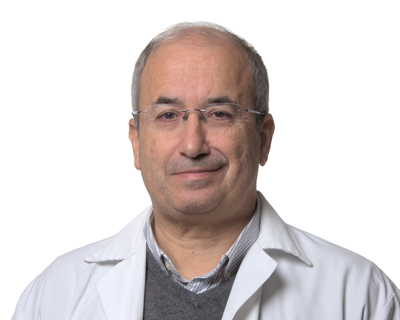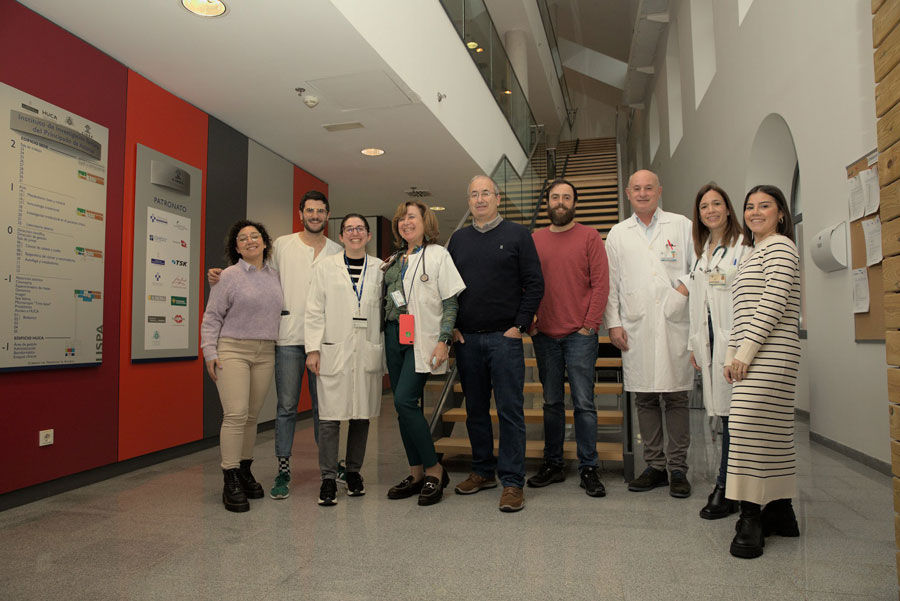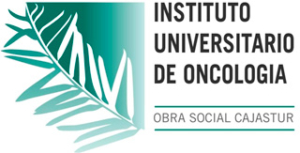UNIT HEAD
Segundo González Rodríguez
LOCATION
Facultad de Medicina, 4º planta, Lab.21, Julián Clavería sn, 33006, Oviedo. Spain.
segundog@uniovi.es

RESEARCH LINES
Our group is focused on the study of the immune response against cancer, especially in the response mediated by Natural Killer (NK) and T cells
- Study of the immune response mediated by NK and T cells
- Analysis of the role of the immune system in the pathogenesis of cancer. Study of the mechanisms of cancer immune evasion
- Study of the anti-tumor immune response in chronic lymphocytic leukemia and multiple myeloma
- Development of new immunotherapeutic strategies in cancer
- Preclinical development of new antitumor compounds with immunotherapeutic properties: In collaboration with various pharmaceutical companies, such as EntreChem, Celgene, BoehringerIngelheim or Bristol-Myers Squibb, our group is participating in the preclinical development of various antitumor drugs with immunotherapeutic potential
GROUP HEAD BIOGRAPHY
Segundo González is a full professor of Immunology at the University of Oviedo and head of the Tumor Immunology Group of IUOPA and the research institute ISPA.He isa MD and PhD and specialist in Immunology. He was a clinical and postdoctoral researcher at the Immunology Service of the Central University Hospital of Asturias and the Dr. Thomas Spies´ lab. Clinical Research Division. Fred Hutchinson Cancer Research Center, Seattle, USA. He has published more than 140 publications related to immunology, transplantation, autoimmunity, the immune response against cancer and immunotherapy with an added Hirsch index h = 42. He has been the editor of the best-selling book on Immunology in Spanish and he is editor of the journal Cancers (Basel) and other international journals related to immunology.
SELECTED PUBLICATIONS
- Mechanisms of apoptosis resistance to NK cell-mediated cytotoxicity in cancer. Sordo-Bahamonde C, et al. International Journal of Molecular Sciences. 2020 May; 21(10): 3726
- Mechanisms of Resistance to NK Cell Immunotherapy. Sordo-Bahamonde C, et al. Cancers (Basel). 2020 Apr 7;12(4).
- The mithralog EC-7072 induces chronic lymphocytic leukemia cell death by targeting the B- cell receptor signaling pathway. Lorenzo Herrero S, et al; Christian Sordo Bahamonde; Frontiers in Immunology 2019. Oct 18;10:2455. eCollection 2019
- NK Cells in the Treatment of Hematological Malignancies. Gonzalez-Rodriguez Ana P, et al. Journal of clinical Medicine.2019 Sep 27;8(10):1557
- Selective and potent CDK8/19 inhibitors enhance NK cell activity and promote tumor surveillance. Hofmann MH, et al. Molecular Cancer Therapeutics, 2020 Apr;19(4):1018-1030
- Daratumumab is a safe and effective rescue therapy for multiple myeloma patients who relapse after allo-HSCT. González-Rodríguez AP, et al. Bone Marrow Transplantation. 2019. Apr 15
- Ig-like transcript 2 (ILT2) blockade and lenalidomide restore NK cell function in Chronic Lymphocytic Leukemia. Villa-Álvarez M, et al. Frontiers in Immunology, 2018 Dec 28;11(1).
- NK cell-based immunotherapy in cancer metastasis. Lorenzo-Herrero S, et al. Cancers (Basel) 2018 Dec 28;11(1)
- NK cells editing mediates epithelial to mesenchymal transition via phenotypic and proteomic changes in melanoma cell lines. Huergo Zapico L, et al. Cancer Research 2018. May 11. pii: canres.1891.2017
- Control of metastasis by NK cells.López-Soto A, et al. Cancer Cell. 2017 Aug 14;32(2):135-154.
- Ig-like transcript 2 (ILT2) suppresses T cell function in Chronic Lymphocytic Leukemia. Villa-Álvarez M, et al. Oncoimmunology2017;6(10):e1353856
- Drug-induced Hyperploidy stimulates an anti-tumor NK cell response mediated by NKG2D and DNAM-1 receptors. Acebes-Huerta A, et al.Oncoimmunology 2015 Aug 12;5(2):e1074378
- NKG2D signaling: the immune subversive side of HDAC3. Folgueras AR et el. Trends in Immunology 2017 TREIMM 1352
- Carcinoma-astrocyte gap junctions promote brain metastasis by cGAMP transfer. Qing Chen; Adrienne Boire; Xin Jin; Manuel Valiente; EkremEmrahEr; Alejandro Lopez Soto; Leni S Jacob; RuzeenPatwa; Hardik Shah; Ke Xu; Justin R Cross; Joan Massagué.Nature. 2016; 7604: 493-501
- Epithelial-to-mesenchymal transition stimulates anti-tumor response mediated by NKG2D receptor. López-Soto A, et al. Journal of Immunology 2013, 190: 4408-4419
- Expression of ERp5 and GRP78 on the membrane of chronic lymphocytic leukemia cells: Association with soluble MICA shedding. Huergo-Zapico L, et al. CancerImmunology Immunotherapy. 2012; 61(8):1201-10
- Histone deacetylase 3 is a repressor of the NKG2D ligands UL16-binding proteins in epithelial tumor cells. Potential implications for the immunosurveillance of cancer. A. López Soto, et al. Oncogene. 2009; 28(25):2370-82
- Disulfide isomerase-enabled shedding of tumorur-associating NKG2D ligands.BK. Kaiser I-Ting Chow, D Yim, Segundo Gonzalez, Z Dai, HH Man , RK. Strong, V Groh & T Spies. Nature 2007; 447(7143):482-486

Personnel
| Name | Position | Phone | |
| Segundo González Rodríguez | Group Leader | segundog@uniovi.es | 34985102715 |
| Alejandro López Soto | Professor. Department of Biochemistry. University of Oviedo | lopezsoa@gmail.com | 34985105211 |
| Ana González Rodríguez | Department of Hematology, Hospital Universitario Central de Asturias. Associate Professor of Hematology. University of Oviedo | anapilargonzalez@gmail.com | 34626043623 |
| Ángel Ramírez Payer | Department of Hematology Chief, Hospital Universitario Central de Asturias | apayer.angel@gmail.com | 34629224749 |
| María Esther González García | Department of Hematology Chief Hospital Cabueñes | esthergongar@yahoo.es | 34985102715 |
| Seila Lorenzo Herrero | Postdoctoralresearcher | lorenzoseila@uniovi.es | 34985105211 |
| Christian Sordo Bahamonde | Predoctoralresearcher(Severo Ochoa) | uo180231@uniovi.es | 34985105211 |
| Mónica Villa Álvarez | Predoctoralresearcher | hobbitie@hotmail.com | 34985105211 |

